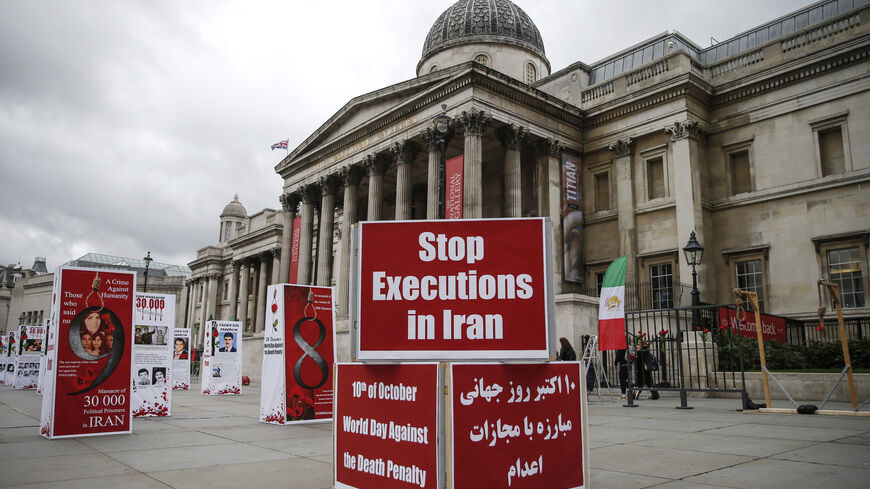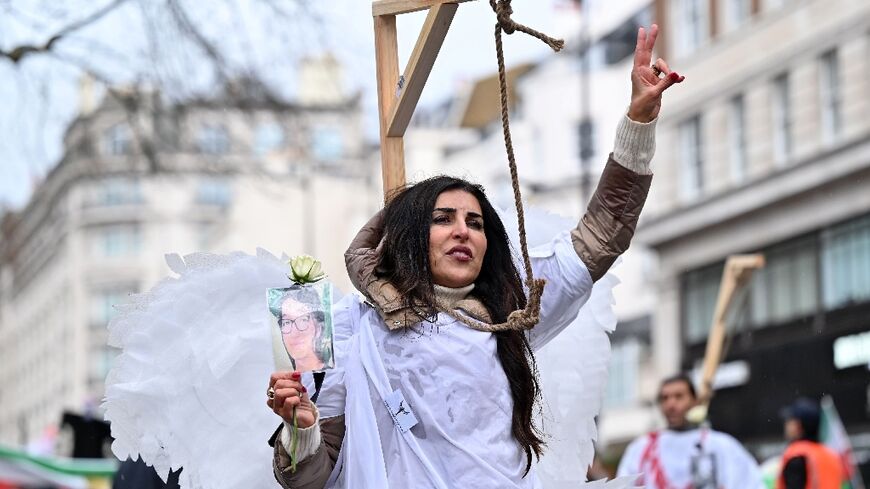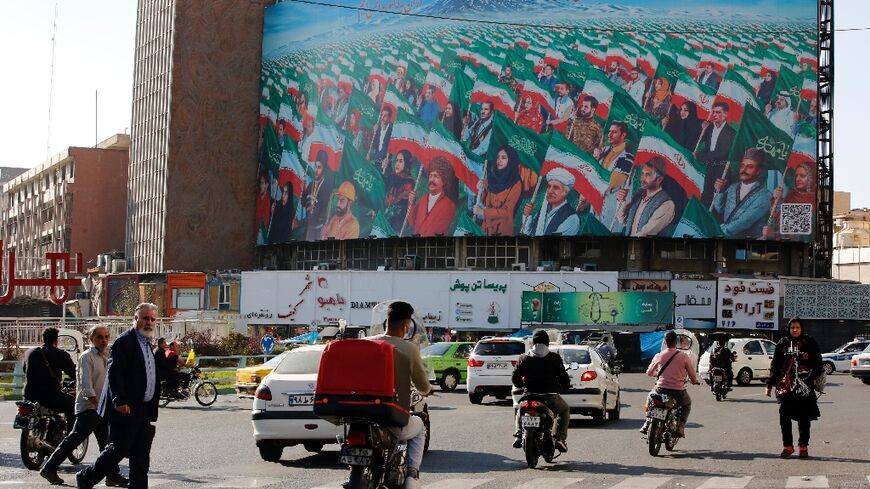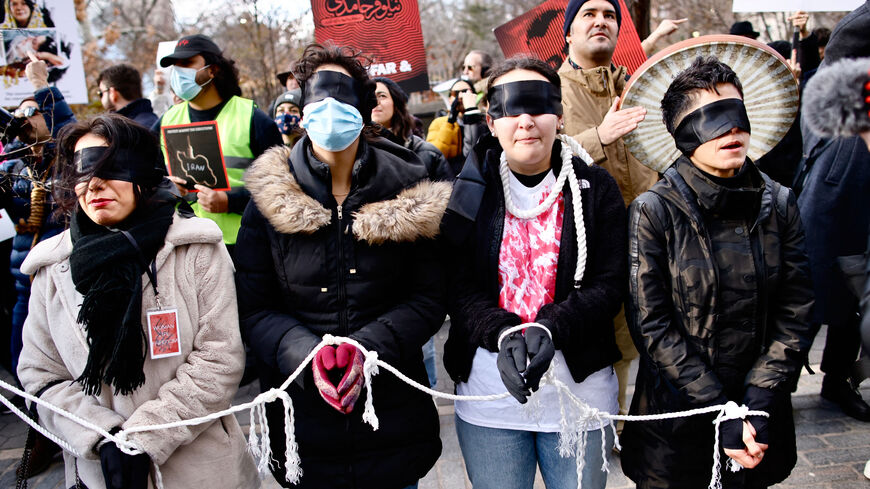Condemnation as Iran hangs three linked to Amini protests
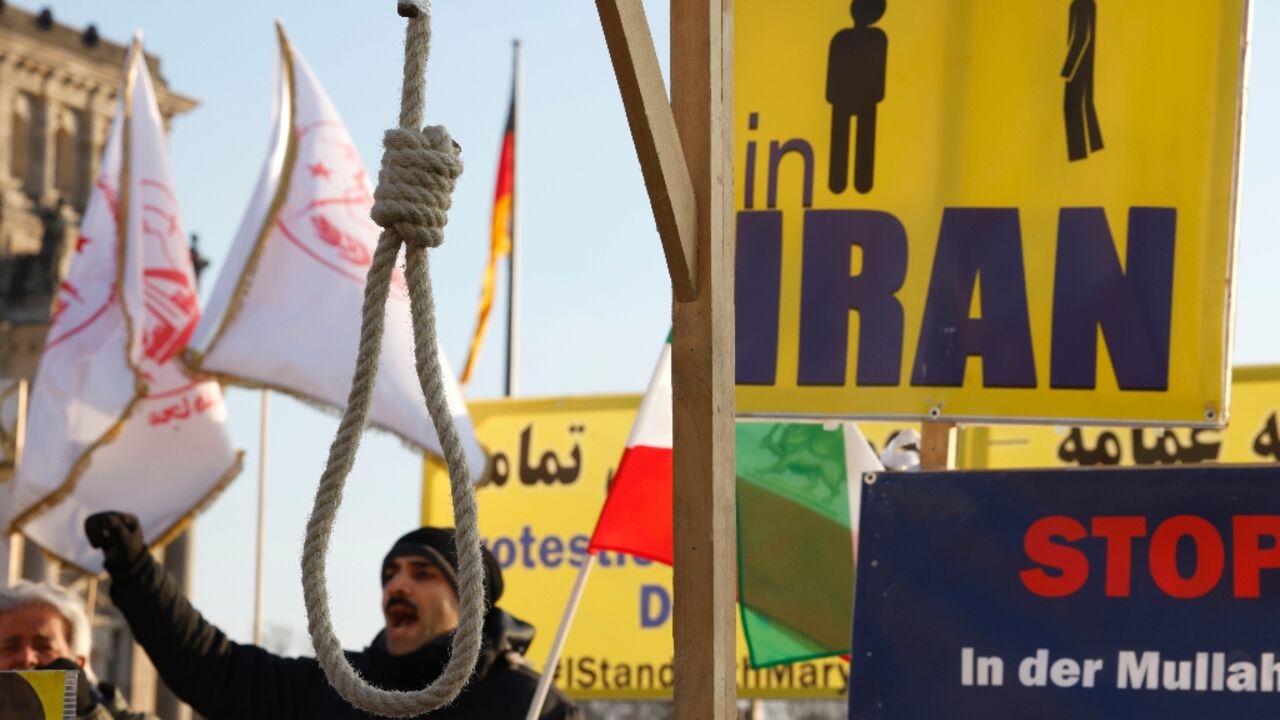
Iran on Friday executed three men convicted of killing security force members during protests triggered by Mahsa Amini's death last year, drawing condemnation from Western governments.
Majid Kazemi, Saleh Mirhashemi and Saeed Yaghoubi were found guilty of "moharebeh" -- or waging "war against God" -- for shooting dead three members of the security forces at a demonstration in the central city of Isfahan on November 16, the judiciary said on its Mizan Online news website.
Iran witnessed waves of nationwide protests following the September 16 death of 22-year-old Amini, an Iranian Kurd who had been arrested for an alleged breach of the Islamic republic's strict dress rules for women.
During the protests, which Tehran labelled as foreign-instigated "riots", thousands of Iranians were arrested and hundreds killed, including dozens of security personnel.
Friday's hangings bring to seven the total number of Iranians executed in connection with the demonstrations.
The European Union condemned the executions "in the strongest possible terms", foreign policy chief Josep Borrell said in a statement.
He called on Tehran to "refrain from applying the death penalty and carrying out future executions", adding that authorities should abide by "their obligations under international law" and respect "the rights to freedom of expression and peaceful assembly".
Kazemi, Mirhashemi and Yaghoubi were arrested in November and sentenced to death in January.
They were also charged with membership of "illegal groups with the intention of disrupting national security and collusion leading to crimes against internal security", Mizan said.
It noted "evidence and documents in the case and the clear statements made by the accused" showed that "the shootings carried out by these three people led to the martyrdom of three (members of the) security forces".
Nazanin Boniadi, a British actor and activist of Iranian origin, tweeted that the three men had been "murdered... after forced confessions and sham trials".
- Surge in executions -
A video shared on social media on Friday and verified by AFP showed Tehran residents chanting "Death to the Islamic republic" and other slogans in the capital's Ekbatan district, the site of repeated protest actions.
The cases of the three men have caused concern abroad, including in Australia where some of Kazemi's family live.
His cousin Mohammad Hashemi wrote an open letter to Australian Foreign Minister Penny Wong asking for her support.
"Majid is only 30 years old. He is a compassionate, loving, and strong-willed person. He, like many other Iranians, participated in peaceful demonstrations to raise his voice and demand change," Hashemi wrote in the letter, published on the petition website change.org.
Wong on Friday condemned the execution, which she said "exemplifies the regime's brutality against its people".
"Australia stands with the people of Iran," Wong tweeted.
- Calls for 'robust response' -
The Independent International Fact-Finding Mission set up by the UN Human Rights Council said it found the latest executions "profoundly concerning" in view of "allegations of their having been convicted and sentenced through confessions obtained under torture".
Human rights group Amnesty International said it was "horrified by the chilling execution of these protesters" and called for a "robust international response".
"These executions are designed by the Iranian authorities to send a strong message to the world and the people of Iran that they will stop at nothing to crush and punish dissent," said its Middle East and North Africa deputy director, Diana Eltahawy.
"In the absence of a robust international response, the authorities will continue to revel, unabated, in their impunity with lethal consequences for people in Iran.”
The authorities last year carried out the executions of four protesters, drawing international condemnation.
Iran executes more people a year than any other nation except China, according to Amnesty.
Since the start of the year, Iran has witnessed a surge in executions on various charges.
The authorities hanged 75 percent more people in 2022 than the previous year, IHR and Paris-based Together Against the Death Penalty said in a joint report in April.
At least 582 people were executed in Iran last year, the highest number of executions in the country since 2015 and well above the 333 recorded in 2021, the two groups said.
Earlier this month, UN rights chief Volker Turk sounded the alarm over Iran's "abominable" track record this year, with an average of more than 10 people being put to death each week.
Advocacy groups have warned that members of ethnic minorities have been disproportionately targeted in the current wave of executions.


